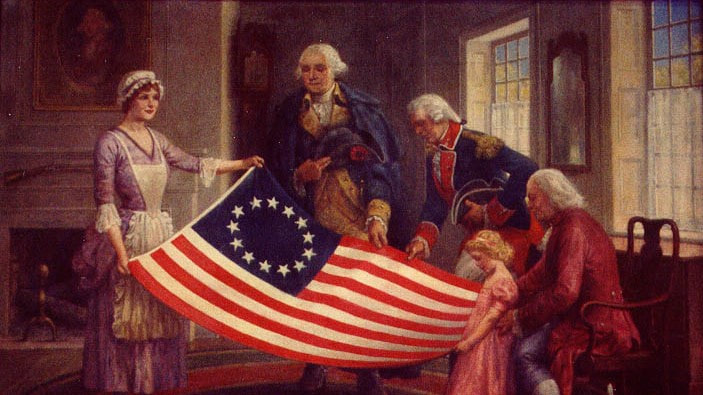|
As we celebrate American Independence, it is appropriate to reflect upon the foundations of our liberty that the American Founding — especially the Founders’ Declaration of Independence and Constitution — have encouraged. Neither the Declaration nor the American Constitution were accidents; both were rooted in an inherited worldview and an understanding of human nature that is of continuing importance to Americans today. For the Founders, human nature was defined by its social character, grounded in community, and devoted to encouraging the unfolding of the moral life, so as to enlighten and develop civilization. With the insights of the classical world, Judaism and Christianity under their proverbial belts, the Founders understood human life as essentially social. Moral and spiritual development required interaction and restraint that were most acutely experienced in one’s community and in society. In other words, the ethical life could not be sustained outside of a social framework. While not rejecting a role for self-interest within the community, the Founders recognized a tension between need for some degree of societal unity and the needs of the individual. They suggested that the properly constituted society could assist in lessening selfishness associated with our “brute creation,” and encouraged attachment to the common good as an alternative. Authentic social life required self-denial in some form, regardless of the level of enmity between individuals and the groups that made up society, as humans were naturally drawn to each other. The Founders also realized that humans were not perfect, so an element of restraint was necessary within society and politics. They rejected the radical individualism often associated with social contract thinkers like Hobbes, Locke and Rousseau. To envision humankind as naturally good was unacceptable. The Founders’ defense of an authentic, moral community was based upon acknowledging that the only natural state was the political and social one to which an actual person was born. Instead of being born free, humans were born subject to parental authority and the laws of the country of their birth. If the country were to survive, the Founders believed a stable mode of popular rule — or citizen involvement — had to be established, and the community must be protected against efforts to incorporate its stake in society and politics into a political structure that would diminish the various communities’ and states’ most important qualities. The preserving and protecting of an organic, “republican” system of popular rule required accepting the natural diversity of the communities and states that formed the larger society and government, while enjoying the increased liberties that resulted from this dividing of political authority. Today, we call this division federalism. Having a political system based on the relative autonomy of local communities and the division of political authority was a great accomplishment, but it needed an anchor. The Founders provided such a guide with the American Constitution. The Constitution is more than a written document, it is a collection of customs, charters, traditions and habits of the American people. The aim of the Constitution was to provide for a high degree of political harmony, so that liberty might be maintained through the centuries. We have been able to preserve social and political liberty because our Constitution provides explicit constraints upon the centralization of political power. As citizens, we are assured that the laws will not change from year to year. The Constitution allows Americans to find some comfort in the fact that if they accept certain restraints, they will experience a great deal of political liberty. Our Constitution divides political power between the national and state governments, as well as between the branches of the national government. This protects citizens, communities, and states from the arbitrary and unjust actions by individuals who have assumed temporary control of the government. The American Constitution also makes those who govern accountable to those who elected them. On one hand, proposals to extend presidential powers are regularly presented, while on the other, congressional proposals to increase the size and scope of the federal government, like the return of a New (“Green”) Deal abound. Unfortunately, such ideas neglect the great accomplishment of American politics — the diffusion of political power and the limits upon the authority of government. Our continued success is dependent upon a recovery of our appreciation of liberty, the original division of power, and the renewal of personal responsibility for perpetuating the regime. Efforts at revolutionizing our understanding of liberty and political authority only undermine our political order. Our great country can survive, and prosper, if we can refrain from being distracted by our current privileges and circumstances, and remember our duties as American citizens. This piece was previously published in SavannahNow on June 28, 2019.
0 Comments
|
AuthorDr. H. Lee Cheek, Jr., is Professor of Political Science and the former Dean of the School of Humanities and Social Sciences at East Georgia State College. Archives |
Proudly powered by Weebly

